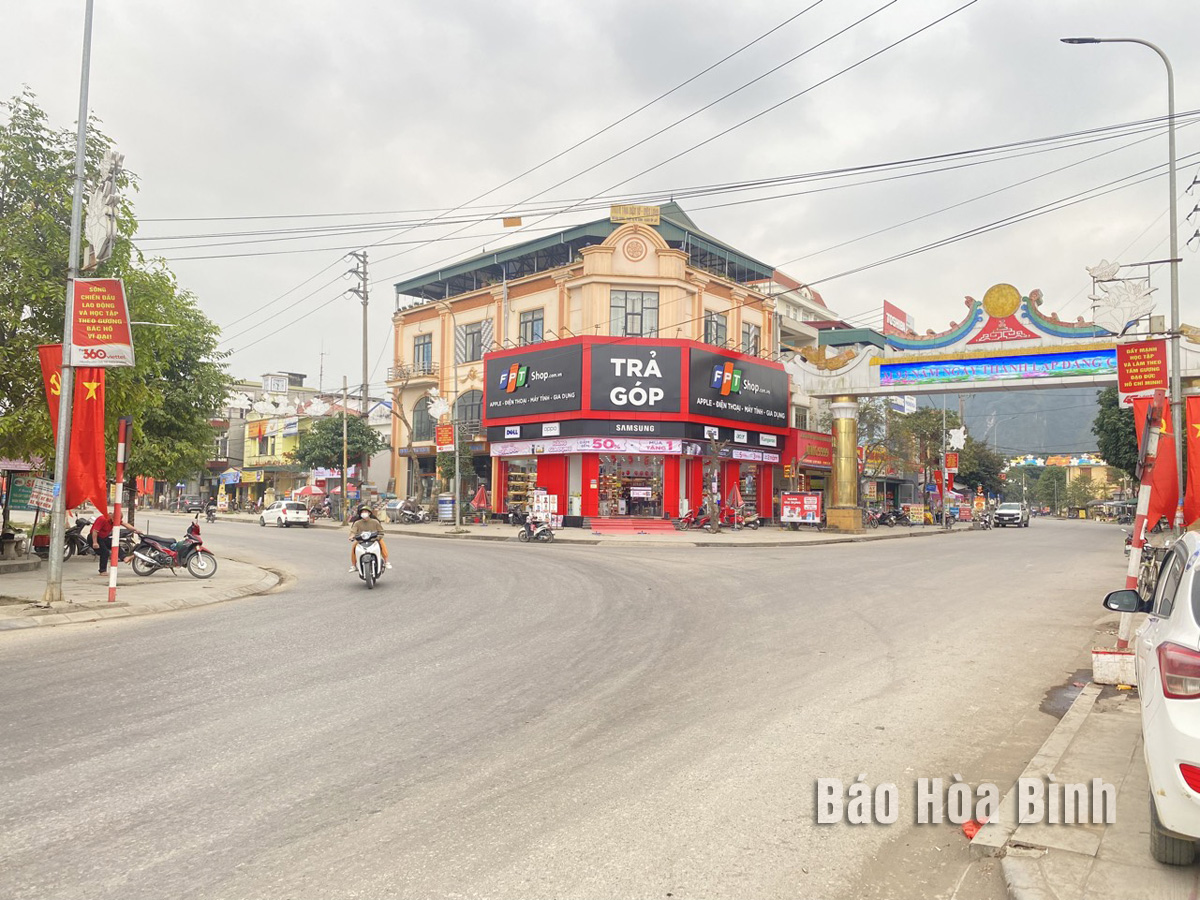
Developing a harmonious and modern-oriented infrastructure stands as one of the three breakthrough stages aimed at fostering socio-economic development, ensuring national defence and security, and contributing to transforming Lac Thuy into a relatively developed district with sustainable and inclusive growth.
Over the recent past, Lac Thuy district has focused on improving urban and rural planning and development. This strategy aims to promote urbanisation while simultaneously creating new, modern rural areas that preserve cultural heritage and leverage local strengths.
The urban planning of Chi Ne town, Lac Thuy district, has been adjusted and expanded with a scale of 1/2000 until 2030, with a vision extending to 2035.
Lac Thuy has achieved substantial progress in planning initiatives. With a total budget of over 17 billion VND (716,000 USD), 21 planning schemes have been completed, including the district's construction plan to 2040, adjustments to the general planning of Chi Ne and Ba Hang Doi towns with a scale of 1/2000 until 2030, with a vision extending to 2035, and master plans for several communes of Phu Nghia, Thong Nhat, Yen Bong, Khoan Du, Dong Tam, Hung Thi, Phu Thanh, and An Binh until 2025, with a vision to 2030, at a scale of 1/10,000.
The comprehensive planning approach provides a clear direction for socio-economic development at both the provincial and district levels. It also streamlines land management and construction order at the commune and district levels, following a comprehensive and effective approach.
The planning process adheres to clear guidelines. The district People's Committee oversees the planning of town adjustments, submitting proposals to the Department of Construction for evaluation and final approval by the provincial People's Committee. For detailed construction plans and commune master plans, the district Economic and Infrastructure Division leads the appraisal and advisory process, seeking input from the Department of Construction before submitting them to the district People's Committee for approval.
Public transparency is maintained through the announcement of planning information by the district People's Committee, communes, and towns. Additionally, boundary demarcation based on the approved plans is ongoing, with regular reviews and adjustments to ensure continued effectiveness. Land management and use strictly adhere to the Planning Law and Land Law, and the development of urban infrastructure and underground spaces follows the approved schemes.
In Hoa Binh province, 11 traditional craft villages with more than 400 small-scaled production households have put in place a clean and green production model, establishing new standards for sustainable development. Waste collection sites and wastewater treatment facilities have been meticulously managed by local residents.
To make it easier for the residents to handle administrative procedures, Yen Bong Commune (Lac Thuy District) has identified the administrative reform as one of its key tasks. By implementing a range of synchronized solutions, the commune has seen the positive changes in the administrative reform, meeting the needs of its people.
Mai Chau district has firmly established itself as a standout destination on Vietnam’s tourism map, attracting both domestic and international visitors with its breathtaking landscapes, rich ethnic culture, and warm hospitality. However, beyond its natural and cultural charm, a secure and well-managed tourism environment has added to Mai Chau’s appeal.
As Vietnam enters a new phase of economic and administrative reform in 2025, Hoa Binh province is stepping up its efforts to streamline governance, boost economic growth, and attract investment.
The Hoa Binh provincial People's Committee held its monthly meeting on March 26 to review the progress of key projects, assess budget revenue and public investment disbursement, provide feedback on draft documents for submission to the provincial Party Committee's Standing Board, and discuss other important matters related to the committee's governance activities.
Playing a key role in Hoa Binh province’s economic development, Luong Son district has been focusing on science and technology development, innovation, and digital transformation.



